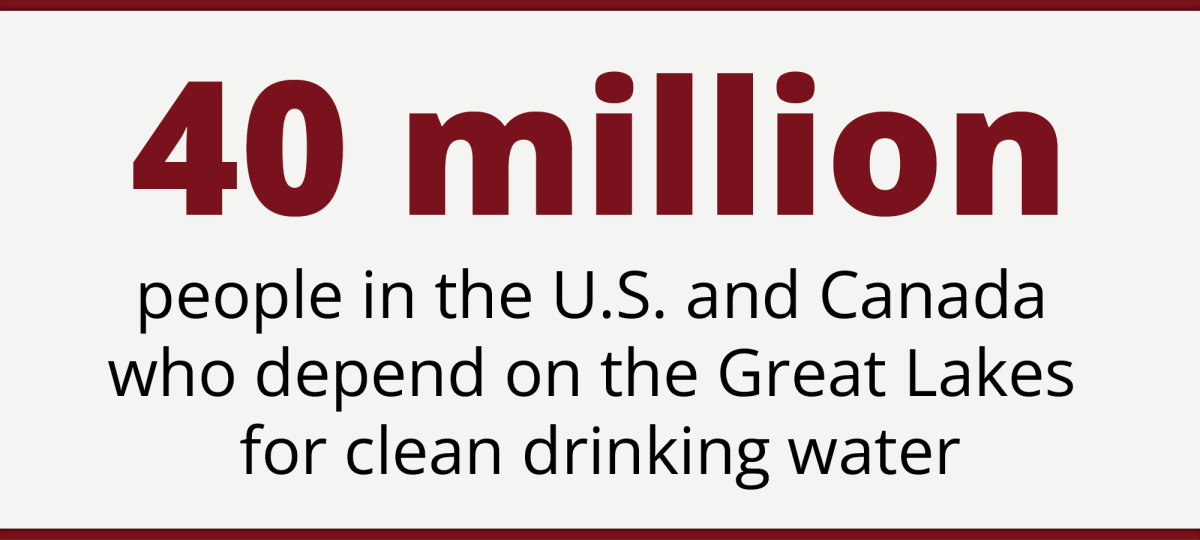University of Minnesota consortium receives inaugural NSF Regional Innovation Engines award

Great Lakes ReNEW, a consortium including several College of Science and Engineering researchers, will receive up to $160 million over 10 years
MINNEAPOLIS/ST. PAUL (01/31/2024) — The U.S. National Science Foundation announced the inaugural Regional Innovation Engines awards, with a potential $1.6 billion investment nationally over the next decade. Great Lakes ReNEW, which is led by Chicago-based water innovation hub Current and includes teams of researchers from the University of Minnesota, will receive up to $160 million to develop and grow a water-focused innovation engine in the Great Lakes region.
Great Lakes ReNEW was one of just 10 Regional Innovation Engines awarded from a group of 700 initial applicants, 188 invited proposals, and 16 finalists. The project’s ambitious plan is to create a decarbonized circular “Blue Economy” that would leverage the region’s extraordinary water resources to transform the upper Midwest. The six-state, cross-sector collaboration will focus on recovering energy, nutrients and other critical materials from water and wastewater that includes Illinois, Indiana, Michigan, Minnesota, Ohio and Wisconsin.
“The ReNEW engine will have access to a network of more than 200 water experts across a wide range of fields at the University of Minnesota. This is a new model for supporting research that will allow our experts to build new regional collaborations and develop creative solutions,” said Jeffrey Peterson, director of the Water Resources Center and a professor in the Department of Applied Economics, and one of the University’s leads for the ReNEW engine.
In addition to Peterson, ReNEW’s University of Minnesota partners include Tianhong Cui, Distinguished McKnight University Professor in the Department of Mechanical Engineering; Paige Novak, Department Head & Joseph T. and Rose S. Ling Chair in the Department of Civil, Environmental, and Geo- Engineering; Vipin Kumar, Regents Professor and holder of William Norris Land Grant endowed Chair in Computer Science and Engineering; Jeffrey Strock, Professor in the Department of Soil, Water, and Climate and the Southwest Research and Outreach Center, and Terrence Simon, Professor in the Department of Mechanical Engineering.
Tapped in part of because of the University’s strengths in interdisciplinary strengths in water-related fields, U of M researchers will work with partners across the Great Lakes region to monitor and recover valuable resources from our waterways, including energy from water and wastewater, nutrients such as nitrogen and phosphorus, critical minerals and materials to use in battery and clean energy production, and removing “forever chemicals” and other contaminants.
“This research consortium will allow us to collectively address water problems, and will make U of M researchers, governmental agencies and industry partners from Minnesota work together with partners in the Great Lakes Region to develop innovative water technologies for emerging startup companies. This will create more job opportunities to boost the economy here in Minnesota and elsewhere,” said Professor Cui, a co-lead of the University of Minnesota team and an expert in water sensing.

The engine will launch with an initial wave of selected research projects, two of which involve U of M researchers. Engineering Professors Cui and Terrence Simon will lead a project to build carbon based sensors based on advanced manufacturing in micro and nano scales for long-term detection of water pollutants including nutrients and heavy metal ions. Engineering Professor Novak will lead a project on expanding platform technologies, including microbial encapsulation and chemically modified microbial carriers, to enable resource recovery from waste and enhanced low-energy treatment of a wide range of water contaminants.
According to the U of M team, as the collaboration develops it will support many additional research projects, enabling collaboration among more Minnesota water experts and other partner institutions. Great Lakes ReNEW will also provide access for technology testbed sites, accelerating their potential for commercial development. In turn, these technologies will generate new startup ventures and job opportunities in the region.
The new Regional Innovation Engines program was created under the federal CHIPS and Science Act to boost innovation capacity, create sustainable innovation ecosystems and demonstrate inclusive growth across regions and demographics.
